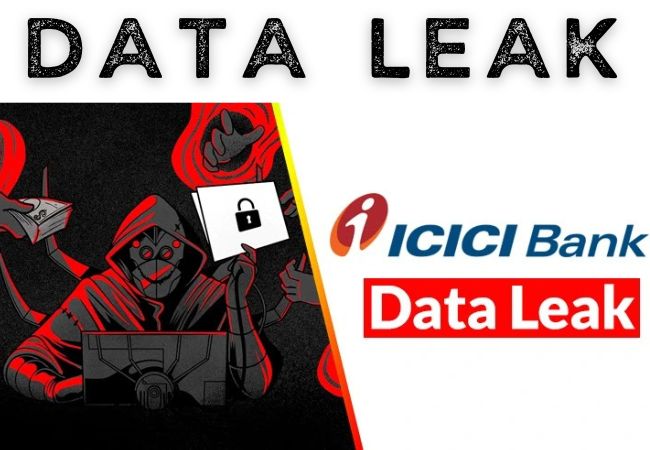The Story Of ICICI Bank Data Leak And How This Is A Potential Threat To Banking Industry!
The information was made public after CyberNews revealed last week that over 3.6 million ICICI Bank data was stolen.

According to Cybernews, ICICI bank, which contains millions of records holding sensitive information, was recently exposed owing to a bank system setup problem. Among the information that was leaked were bank account data, bank statements, credit card numbers, complete names, dates of birth, home addresses, phone numbers, emails, personal identity cards, and resumes of staff and candidates. However, at a press conference after the claims, ICICI Bank Executive Director Sandeep Batra declared that rumours of a data breach involving 3.5 million credit card records are “baseless” and that the bank does not own or control the aforementioned URLs.

Who disclosed the breach of Data at ICICI Bank?
This information was made public after CyberNews revealed last week that over 3.6 million ICICI Bank data, including information on the bank and its clients, had been taken from a publicly accessible cloud storage bucket maintained by DigitalOcean, a New York-based cloud service provider. According to ICICI Bank Executive Director Sandeep Batra, Cybernews has not yet provided the URLs with the bank, and the ones they have supplied are incorrect.
Banks’ technological problems.
Recently, numerous clients noticed problems with many banks’ IT services. Customers of HDFC Bank, ICICI Bank, Yes Bank, Bank of Baroda, and IDFC First Bank that participated in the retail digital rupee trial have complained about technical difficulties and payment challenges. Aside from that, several clients of the country’s leading banks, State Bank of India (SBI) and HDFC Bank, resorted to social media to express their dissatisfaction with disruptions in banking services. Some people had difficulty transferring payments using mobile applications and communicating with customer support representatives.

Independent researchers, on the other hand, claim that the stolen material looks to be authentic and is not confined to ICICI. The compromised bucket contains data from several other companies. With each passing year, cybersecurity grows more vital for organisations and agencies of all sizes across practically every industry. In 2020, ransomware incidents increased by 150%, and a new assault is launched somewhere on the internet every 39 seconds. A data breach also results in increased expenses in banking and finance.
How Much Does a Data Breach in Banking and Finance Cost?
Since 2019, the rising demand for remote banking solutions and services has exacerbated database security concerns. This has also resulted in an upsurge of compromised credentials. These might be the result of remote working staff, successful phishing efforts, or incorrectly set up cloud-sharing networks.
In 2021, the overall worldwide cost of data breaches in the financial industry is somewhat lower than in 2020. However, banking and finance data breaches continue to be the second most expensive industry affected by data breaches. In 2021, financial businesses will have lost an average of $5.72 million due to data breaches. According to IBM Security’s sponsored, analysed, and published ‘Cost of a Data Breach Report 2022’, an average number of days to discover and contain a data breach is 277. With the typical breach staying unnoticed for more than nine months, the financial effect of compromised banking accounts and stolen records can be significant, leading to expensive recovery attempts.

The rising reliance on artificial intelligence (AI) is another problem that financial industries confront today and in the future. This can boost consumer happiness and simplify alternatives in self-service platforms and services. Attackers, on the other hand, invest substantially in applying AI to uncover system flaws. They can use it for farming usernames and passwords for online financial systems and mobile apps.
The Number of Data Breach Incidents Has Decreased.
According to the IBM analysis, data breaches grew 10% globally from 2020 to 2021, with average expenditures increasing from $3.86 million to $4.24 million. There is, however, some good news. Other industries have witnessed significant increases in year-over-year losses associated with data breaches. Meanwhile, the banking and financial sectors have experienced a modest decline. There is optimism that data breach patterns will continue to drop as more organisations like ICICI bank invest in automation, data encryption, and improved cloud management practices.






